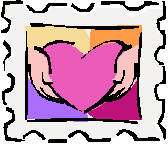 |
||
|

Kathy Wells Paauw
Productivity Consultant
Certified Business & Personal Coach
Trainer
____________
FREE EZINE
Please share this article with others. Forward it to your friends or print it for easy distribution within your office.
Was this forwarded to you by a friend? Click on the logo below to subscribe today.
Paauwer Tools has been published monthly since 2000. Click here to view all previous issues.
____________

Read about Kathy's book, The Music of Your Heart.
____________
FREE BLOG
___________
FREE TELECLASSES
Attend FREE classes taught over the phone. Learn how to increase your productivity with tips, strategies and techniques that can benefit your professional and personal life immediately.
___________
FREE TIPS
Check out my FREE tips. I offer many valuable tips about time management and organization.
____________
FREE ASSESSMENT
Do you qualify for a FREE collaborative interview by phone? Find out by completing a brief organizational assessment.
____________
VISIT OUR OTHER
WEB SITES:
Keep in touch with family, friends, prospects and clients by sending a quality personalized greeting card in the mail for a dollar. We'll show you how to create and send a personalized greeting card in 2 minutes!
____________
PRODUCTIVITY TOOLS
More productivity tech tools...
_______________
RECOMMENDED BOOKS
Check out our links to some great books:
___________
PERMISSION TO PUBLISH THIS ARTICLE ELSEWHERE
If you like this article, feel free to share it with your own list, post it on your site or on your blog, or print it out to distribute...as long as you leave the text intact, include all hyperlinks, and include this at the end:
©2000-2012 Paauw Enterprises, Inc.. All Rights Reserved. Wouldn't you love to stumble upon a secret library of ideas to help you de-clutter your life so you can focus on what’s most important? Kathy Paauw offers simple, yet powerful ideas, on how to manage your time, space, and thoughts for a more productive and fulfilling life. Visit
Subscribe to ezine at
___________
|
Will You Be YOUR Valentine?
When you got your first car, you were probably aware that you could replace it later. If someone had told you that this was the only car you'd ever have, do you think you would have taken better care of it? Unlike a car, we only get one body. We cannot expect to abuse a car—or our bodies—and enjoy a long and productive life. This year on Valentine's Day will mark the 32nd anniversary of my father's death. When people ask how he died at such an early age--he was 47--I tell them that he died of a broken heart. I attribute much of my father's heart disease to the high stress he was under, his genetic predisposition to heart disease, and his unwillingness to eat a healthier diet and get regular exercise. There was one more contributing factor to his fatal heart attack: my parents had just divorced and my father was very lonely. It's ironic that my father died from a heart attack on Valentine's Day--a day that we plaster hearts all over everything as a way to recognize those we love. The night before he died, his office assistant was visiting him in the hospital Intensive Care Unit. He asked her to take down a message and put it in a Valentine to his children. Because he was so heavily sedated, she told him that she would come back in the morning to take down his words. He begged her, "Please…take my message now…I'm going to die." She dismissed his request--chastising him for talking such silly nonsense about dying--and she told him she would be back in the morning. Even in his heavily-medicated state, my father wanted to reach out and feel connected. He wanted me and my siblings to know that he loved us. His parting gift to us was a hand-written message, scrawled on the back of a used envelope sometime before 2 a.m. on Valentine's Day, expressing his final wishes that each of us experience love, joy and peace. Dad's homemade Valentine was found at his hospital bedside after he was pronounced dead. Dr. Dean Ornish, a Clinical Professor of Medicine at UCSF and author of the book, Love and Survival : The Scientific Basis for the Healing Power of Intimacy , tells us that medicine today focuses primarily on drugs, surgery, genes and germs. Yet love and intimacy are at the root of what makes us sick and what makes us well. Connections with other people affect not only the quality of our lives but also our survival. Numerous studies have concluded that people who feel lonely are many times more likely to get heart disease than those who have a strong sense of connection and community. Heart attacks are four times more likely after the loss of a partner due to death or divorce. Depression and social isolation may increase the activity of platelets, which are cells that make blood clots. The increased platelet activity raises stress hormones, blood pressure and glucose, which increases your risk of heart disease. In Cheryl Richardson's book, Take Time for Your Life, she suggests that we practice "extreme self-care." Many of us have been raised to believe that this is a selfish act. Quite the contrary! It's important to remember that when we put the needs of our work or of others before our own personal needs, we put ourselves at risk. And when we neglect our health, well-being, and our relationships, we become less available to assist others and less effective professionally. Do you recall the instructions given on an airplane before takeoff? "In the unlikely event that the cabin were to depressurize, please put on your own oxygen mask before assisting others." Why? If you don't take care of yourself first, you may not be available to assist others. My father's untimely death brought this lesson home to me! Take Back Your Time I often hear people say things like, "I'll take some time off after I finish these projects." But if completing everything on the "to-do" list becomes a prerequisite to relaxing or practicing some self-care...well, that day will never come! Being proficient in your profession will only get you so far … especially if it is affecting your physical, mental, spiritual, or social well-being. Have you ever known anyone on their deathbed to say, "I wish I had spent more time at the office!"? The first step in reclaiming your life is to make proactive choices, rather than being reactive to your external environment and allowing the events in your life to dictate your priorities. Being proactive requires you to be conscious and intentional. A body that's used to running on high levels of adrenaline is like a car engine that has the idle set too high. It will take time to retrain your mind and body to slow down in order to make choices that will help you practice better self-care. Instead of impulsively responding to a request of your time or automatically launching in to work on an unfinished task, learn to stop and ask yourself what's most important. Do you really need to take that phone call right now? Will the world come to an end if you wait until tomorrow to check your email? How about if you turn your pager and cell phone off? Is it critical to clean the house before you go out for the evening? What would happen if you said no to someone who asked you to do something? Tim Ferriss, author of The 4-Hour Workweek, suggests that you ask yourself, "If that's the only thing I accomplish, will I be satisfied with my day?" He suggests that what's most important is more often than not the task you're most uncomfortable doing, so you keep putting it off and doing less important things. It's important to be clear about why you want to be more productive. What will that do for you? Do you want more income? Do you want more family or play time? Do you want to travel more? You need a big enough "why" before you will change your behavior. Without clear motivation, nothing will change just for the sake of change. Here are some tips to help you take back your time:
One of the best ways to love yourself is to take back your time. When you do this, you will be more available to love others without feeling resentful, cranky, and tired. Remember that every time you say "yes" to someone or something, you are actually saying "no" to someone or something else (including yourself). Don't be the victim who "has to" say yes to a request. It's your choice! Who Needs to Hear from You?
Think of someone you would like to foster a deeper connection with--a friend, neighbor, relative, lover, or even someone you secretly admire. Do they know how much you care about them? I wish I'd sent my father a card before he died. Don't live with regret. Instead, have fun sending out love NOW to someone who needs to hear from you. We may assume that we can put off telling someone what they mean to us, but tomorrow is no guarantee for any of us. I invite you to think of the meaningful and important relationships in your life. If you learned that any of them had just died, would you have any regrets? Anything left unsaid that you'd wished you could pull back the clock and have a redo? My dear friend, Nina, died on December 30. I had written her a thank you note on December 20, and in that note I told her how much I cherished and appreciated her. I have no regrets about leaving anything unsaid with her. Although I had no idea that Nina would have a stroke a week after I saw her on December 20, I sent her a card that night. In closing, I encourage you to practice extreme self care with yourself. I wrote an article about self-care in last month's Paauwer Tools and I invite you to read it here. My father was 47 when he died of a heart attack. Nina was 57 when she died of a stroke. Both untimely deaths could have been prevented with good self-care. Please take care of yourself! Blessings,
© 2013 Paauw Enterprises, Inc., All Rights Reserved. |

